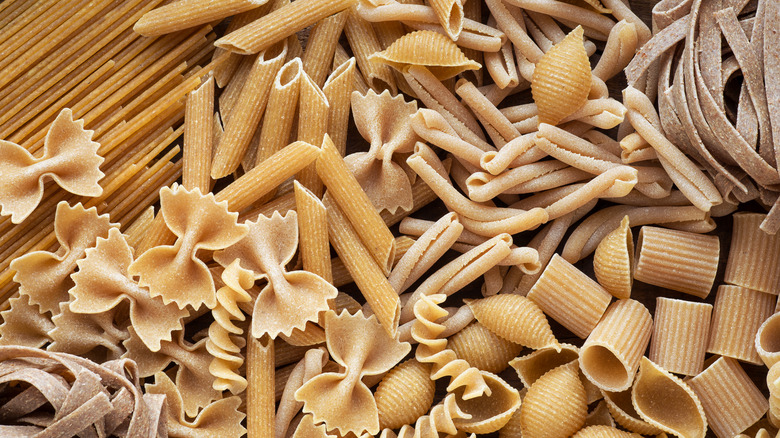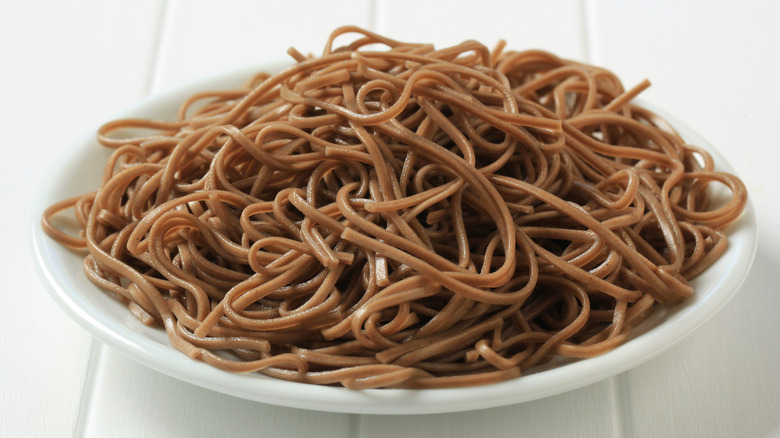Give Your Pasta Richer Flavor By Toasting The Noodles
Pasta has a relatively neutral taste, which means it pairs well with all sorts of ingredients, whether you're pairing egg noodles with beef stroganoff or making a cheesy bowl of spaghetti carbonara. Admittedly, if you want to shake things up and upgrade your pasta, almost every strategy involves tweaking the sauce or ingredients. But there is one thing that you can do that can actually enhance the flavor of the pasta itself before you've even placed it in water. As odd as it sounds, toasting the noodles before boiling them can be a game-changer.
Of course, toast doesn't taste the same as bread. And after some time near a fire, a marshmallow becomes a whole different animal; the same goes for nuts after a quick trip to the oven or skillet. Something similar happens when you toast dry pasta. Without adding any ingredients, cooking noodles before boiling gives them a deep nutty element that will give a refreshing new dimension to your meal.
Tips for toasting pasta
If toasted pasta sounds like something you'd enjoy, there are a few things you need to know before giving this technique a try. First, good news: You can toast any type of pasta. It doesn't matter if your favorite is spaghetti, rigatoni, farfalle, or some other pasta shape, you can enhance its flavor by cooking your noodles before boiling them.
Just as there are different types of noodles, there are different approaches to toasting. You can spread pieces of pasta on a baking sheet and cook them in an oven. You can also cook them in a skillet or heat them up at 50% power in a microwave, though both these methods require tossing the noodles in a little oil. Alternatively, you can cook them in a convection toaster oven or give them a quick crisp in an air fryer.
No matter which type of noodles you prefer or how you toast them, the goal is even heating. For instance, spaghetti may cook fine on a stove, but you might have a hard time thoroughly toasting a hollow noodle like penne that way, so using your oven might be a better fit for that shape — just like any other cooking technique, there'll be some trial and error until you figure out what's best for you and your kitchen.

